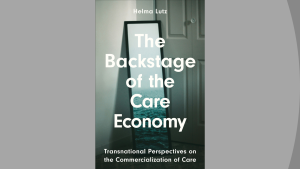
Landlords should not be homelessness ministers
Elsie Furie •Elsie Furie looks at the resignation of Labour MP Rushanara Ali, and argues that having landlords in the role of homelessness minister is always a mistake.
Last week, Labour MP Rushanara Ali resigned as homelessness minister after it was revealed that she had recently evicted her tenants, supposedly to sell the property they lived in, then put the property back on the rental market shortly afterwards with a £700 a month rent hike.
Rightly, commentators have pointed out the hypocrisy: she’s a politician who oversees policies that affect homeless people, and she’s making people homeless for personal gain.
Ironically, Labour’s Renters Rights Bill – still crawling its way through Parliament – as if their pledge to end Section 21 evictions in the first 100 days never existed – would make it an offence to evict tenants on the grounds that you were selling a property, only to put it back on the rental market within 12 months.
This is the second Labour homelessness minister this year who has been a landlord. The last was Mike Amesbury, who recently had to quit his job after punching a constituent in the face on CCTV.
I heard Mike Amesbury speak once. He expounded on the homelessness crisis fairly eloquently for a while at the start of the talk. But then it all got a bit stormy, because an audience member asked him about rent controls, and why Labour wouldn’t support them, when clearly rising rents were a key cause of homelessness. He said something like: no, no, small landlords would suffer then, because their mortgages are going up, and why should they have to pay? He didn’t respond well to being asked why tenants should have the cost passed onto them. He also didn’t like the point that 41 per cent of landlords had no borrowing of any kind on their properties. No; Labour’s hands were tied then, and they’re tied now. It’s quite a magic trick to tie your own hands like that.
I didn’t really understand why Mike Amesbury reacted in that way, so I did a quick Google. Voilà, I found a declared interest – his rental property.
It might sound obvious, but we should object when landlords are appointed as homelessness ministers.
A huge proportion of homelessness still follows eviction from the rented sector – 55.3 per cent of all homelessness from the first quarter of 2025 followed an eviction from rented property, as opposed to, say, relationship breakdown or leaving care. In this period, the most commonly recorded reason for Councils finding that privately-renting households were owed a ‘prevention duty’ (a duty to prevent their homelessness) was because the landlord wanted to sell or re-let the property. This affected over 8000 households in just three months at the start of this year.
Just because this is common doesn’t make it okay. Even in our current legal framework, it is totally possible for a landlord to sell a property without evicting their tenants. Landlords can sell a property with ‘sitting’ tenants. They may get slightly less money for a house with sitting tenants, since only wannabe landlords can buy it, rather than people who want to move in. But in many countries, selling with sitting tenants is the norm. Here, landlords aren’t expected to take that hit – the tenants and their local authorities are simply expected to carry the burden of re-housing so that landlords’ profits are protected.
It’s not about whether Rushanara Ali was a “good landlord” or a nasty landlord, which is what she appealed to in her resignation letter by saying she had followed all the relevant legal requirements. The legal requirements are a smokescreen – in an exploitative system, they do not offer sufficient protection for tenants. Trying to make a profit on someone’s shelter creates a fundamental contradiction, and some antagonism with tenants who need a roof over their heads is almost inevitable in the dynamic of landlordism. The law comes in to resolve these antagonisms – usually in landlords’ favour.
So, landlords gonna landlord, and of course, in their class position, it’s no surprise when they end up in the halls of power. But it should be clear that it is a patent conflict of interest to take up a role in government when you personally benefit from the root causes of the problem you’re tasked with solving.
Of course, with their absolute cowardice in the face of the most minor criticism from rentier capitalists, Labour refuse to see that. Despite her Thick-Of-It style resignation (Malcolm Tucker handing her her pre-written speech cards, no doubt), Labour MPs still came out to defend Rushanara Ali’s position, and Keir Starmer wrote back to thank her for her service. Maybe now they will consider appointing Jas Athwal to the role, or one of the other 36 Labour MPs who make more than £10,000 a year from rental income.
I’ve tried to explain the woes of the homelessness system’s partnership with private landlords here. Perhaps the growing partnership between local authorities and private landlords makes the landlord/homelessness minister crossover seem less contradictory. But it is, and should be, contradictory.
Every day that passes under Labour reminds me: this new party can’t come soon enough.




0 comments